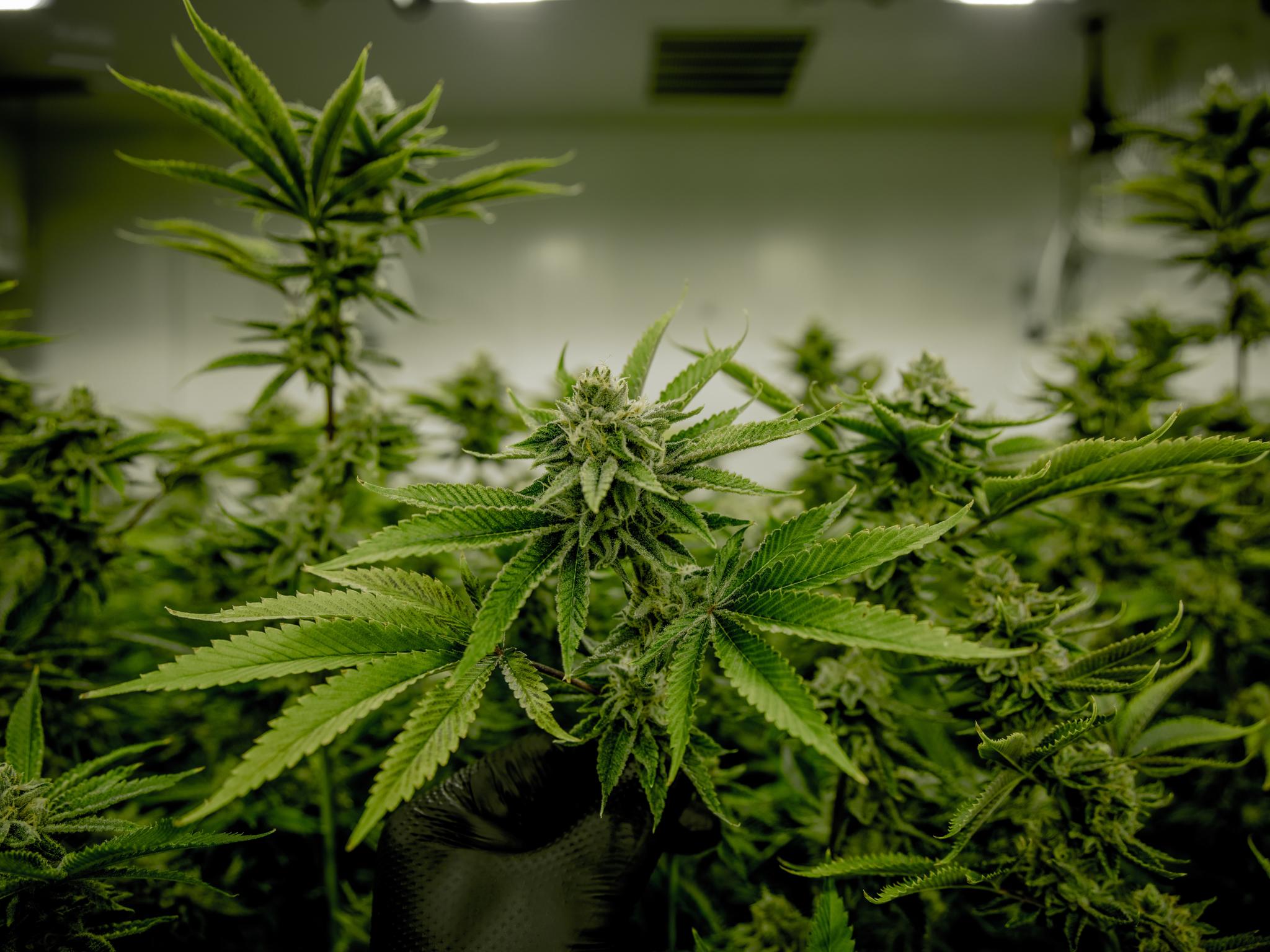
Cultivated Output to Support New York and New Jersey Adult Use Programs
As New Jersey and New York begin deploying adult-use cannabis programs, many people are talking about the number of licenses and the amount of taxes that will be gleaned from legal cannabis sales. One approach that few, if any, analysts have used is to examine how much supply is needed to support the ramps in these two states. Here is what our models say:
- Cultivated output is defined to be the total amount of cultivated supply required to support the demand for cannabis this year, regardless of delivery mechanism (Flower, vape, edibles, tinctures, etc.).
- In 2022, New York will require more than 425,000 pounds of cultivated output to support the adult-use ramp in its first year alone, while New Jersey will require just over 300,000 pounds of cultivated output to support their demand in 2022.
- By 2023, as more consumers participate in the legal marketplace, New York and New Jersey will together require more than 1.2 million pounds of cannabis output combined (New York will require 625,000 pounds and New Jersey will require 620,000 pounds)
Many Questions Arise from These Cultivated Demand Estimates:
- Will New York’s utilization of hemp farmers to produce for the adult-use space, create enough output to support the industry in 2022?
- Does New Jersey have enough licensed canopy (or too much?) to support their initial launch of adult use cannabis, without impacting support for medical cannabis patients?*
- How will the amount of supply impact the pace of consumer conversion to legal cannabis channels?
Using Data to Assess Policy for Adult Use Cannabis – A New York Example
Cannabis supply and demand estimates have significant implications for states, and they invite questions that should be asked. Regulators are able to make more informed decisions, particularly when it comes to administrating licenses, understanding the influence supply has on the market, and having reliable models for how consumer transitions into legal markets work. New York policy makers can use data to support a successful ramp of the adult use cannabis market.
- New York Legal Participation: New Yorkers have a tradition of illicit participation. Based on data from 2021, despite having legal access, roughly 33% of New York’s medical cannabis patients actually buy from licensed dispensaries. This shows us that legal cannabis prices are too high in the state of New York.
- New York Policy Implication: If New York runs into legal supply constraints as they launch their adult use program, cannabis prices will remain elevated, and consumer conversion from illicit markets to legal ones will be suppressed. Unless there is an incentive to participate legally, the deployment of the adult use program will immediately face challenges.
For Cannabis Regulation to Be Effective, States Needs Consumers to Participate
Because U.S. cannabis consumers are extremely price sensitive, the supply and price of cannabis each play a significant role in the success of any state’s adult use program. If supply is constrained and prices remain elevated, New York and New Jersey cannabis consumers will likely choose to remain in the illicit market. Additionally, state regulators will struggle out of the gate, firms will be challenged when it comes to profitability, and even efforts to support minority participation will have challenges.
Sizing State Markets Using Supply and Demand Analysis
Often, cannabis policies have been created by considering only the demand side of the cannabis equation and the tax revenue implications. This approach is incomplete because it doesn’t consider the supply. Considering the supply of cannabis is critical when setting cannabis policy. A more comprehensive approach is to balance demand with supply, and then base cannabis licensing and social equity policies upon those numbers. This approach will result in several positive and balanced outcomes for the cannabis industry, including:
- A less volatile market that sets operators up for success
- A more predictable licensing environment
- Steady prices and greater levels of legal adult use participation
- A decline in illicit market for cannabis
New Economic Tools to Support State Cannabis Regulators, Investors and Operators At Whitney Economics, we have found that cannabis demand is very predictable, and we have built our models accordingly. These models can predict the amount of legal capture of overall cannabis demand in a state, at any given time throughout the initial years of adult use deployment and can also accurately determine the amount of cultivated supply needed to support these ramps. Whitney Economics has developed a balanced and predictable model for cannabis supply and demand in every U.S. state.
The tools are now available for policymakers to set sound, informed policies. Legislators and regulators simply need to use them. Sensible cannabis policy at the state level should be the norm, and not the exception. How successful New York and New Jersey are in rolling out their adult use programs will have a profound effect on
those states’ cannabis industries for years to come. Understanding the importance of supply will play a key role in its success.
*Based on their canopy, we predict that New Jersey will face difficulties supplying to meet all of the demand for cannabis in 2022
About Beau Whitney, Whitney Economics:
Beau Whitney is the founder and Chief Economist at Whitney Economics, a global leader in cannabis and hemp business consulting, data, and economic research. Beau is considered one of the leading cannabis economists in the U.S. and globally. His applications of economic principles to create actionable operational and policy recommendations has been recognized by governments, and throughout the economic, investment, business communities. Whitney Economics is based in Portland, Oregon.
©Whitney Economics, LLC. 2021 503.724.3084 www.whitneyeconomics.com







